Hotels have been squeezing how long you can stay in the room when paying for a stay. It might seem logical that each day you pay for gets you 24 hours, but that isn’t true at all. Flexible check-in times, though, are both an opportunity for great customer service and also increased revenue.
- Hotels need time between when a guest checks out and when the next one checks in, so there’s a gap.
- The gap has been growing. Check-in times that used to be 3 p.m. may not be 4 p.m. or 5 p.m. Check-out times that used to be Noon may have shaved back to 11 a.m.
- Very few hotels are flexible about their check-in and check-out times, at least until the last minute and if they know they aren’t fully booked but still fully staffed with housekeeping.
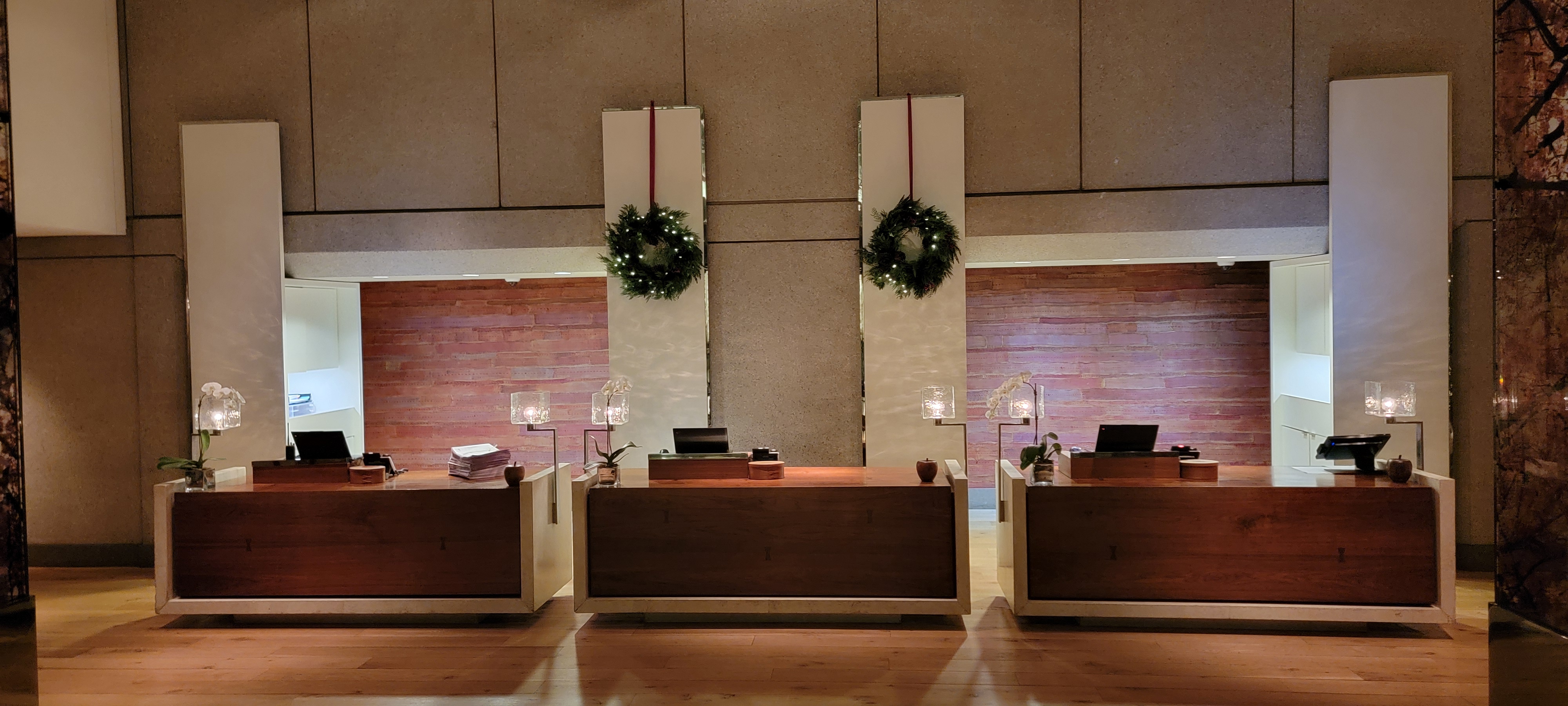
For decades, hotels have organized their operations around mid-afternoon check-in and late-morning checkout. This structure has become second nature not just for hoteliers but for guests and booking platforms.
Many procedures—from housekeeping schedules to night audit routines—were established long before sophisticated reservation systems. The industry collectively fell into a pattern that stuck. Large hotel chains and independent establishments often conform to these norms to align with traveler expectations. When booking accommodations around the world, guests are accustomed to these time windows.
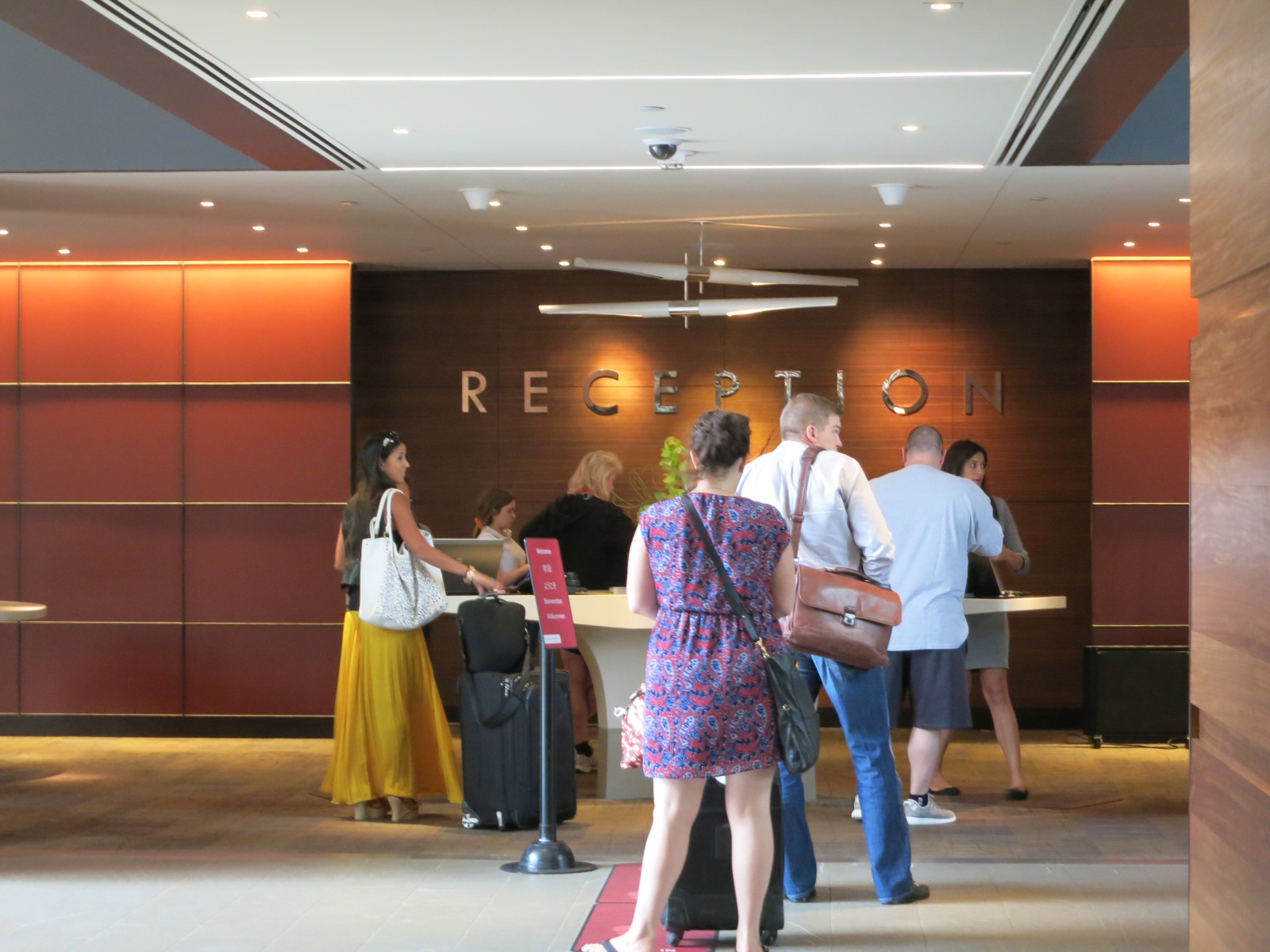
Housekeeping is a big part of that – each room needs cleaning, restocking, and inspection before it’s ready for the next guest. Standardizing times simplifies housekeeping shift patterns and laundry cycles. Flexibility would require more dynamic scheduling models, which are usually more expensive.
And hotels have been shaving housekeeping expense. They often employ as few housekeepers as possible, and even refuse to upgrade elite guests into available suites to avoid having to clean a larger space. (Or cleaning the suite, but not inspecting it, so that it isn’t “available” when the elite member checks in.)
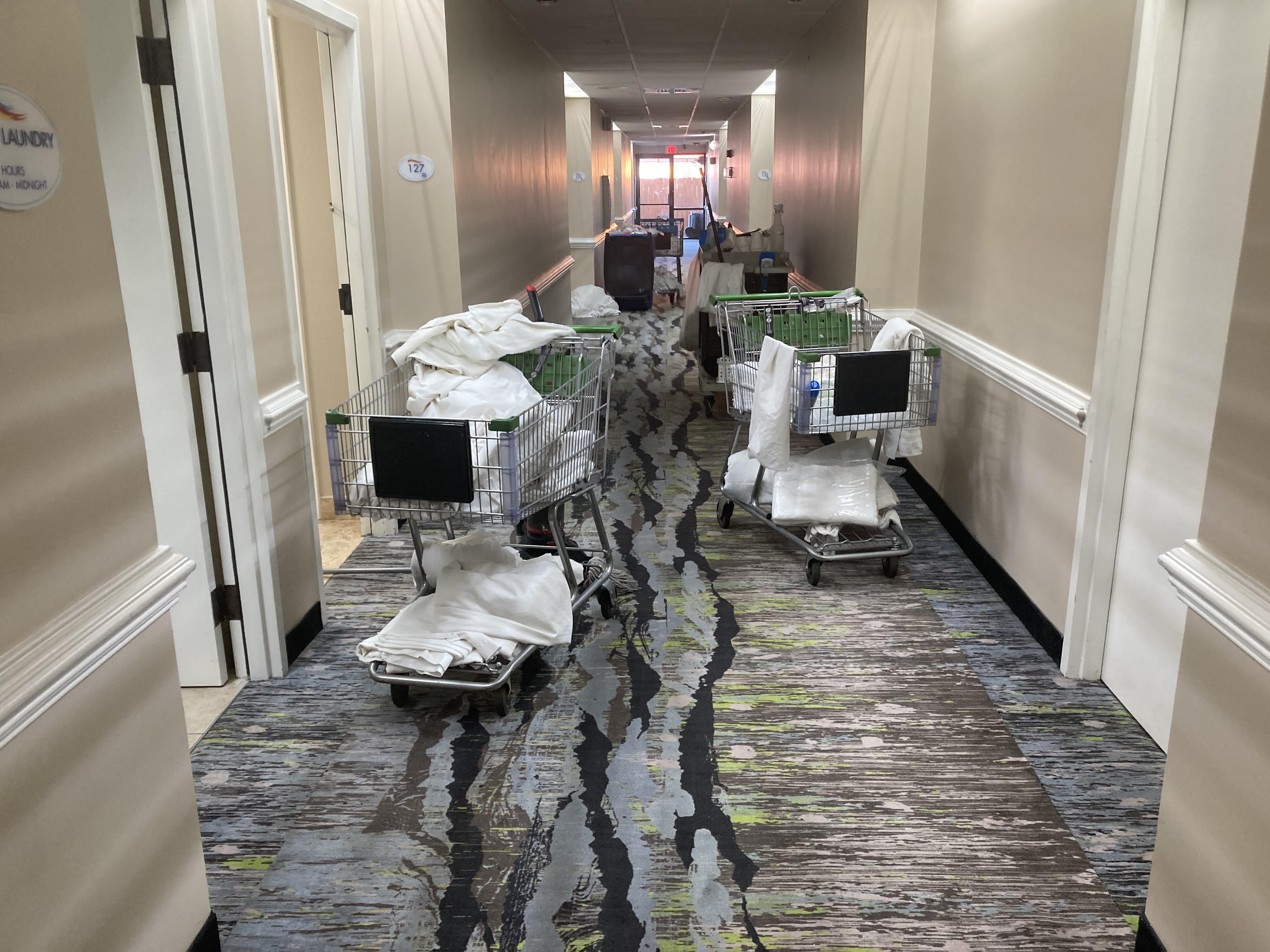
Since most hotels market their product on a “per-night” basis, and you’re not paying for a 24-hour block. Revenue managers adjust rates day by day based on demand. A 24-hour clock from check-in complicates yield management forecasting and pricing.
These times generally work for corporate travelers, who fly out in the morning and arrive in the afternoon or evening – or if taking an overnight flight might head straight to the office before their hotel. And these travelers go to work from their hotel on the last day of their stay, usually checking out early.
- That’s not great for many long haul trips, where passengers arrive in Europe in the morning or South Asia in the middle of the night. And that’s especially challenging for leisure travelers in those markets.
- Resort guests are more likely to want to check out later, which is also why late check-out commitments usually don’t include guarantees at resorts (plus resort rooms may take longer to prepare between guests, especially beach resorts with guests tracking sand!)
- And traditional managed corporate travel has been a smaller part of occupancy mix since the pandemic, with leisure travel picking up and business trips often mixed with personal by those who can work from home (or anywhere) at least part of the week.
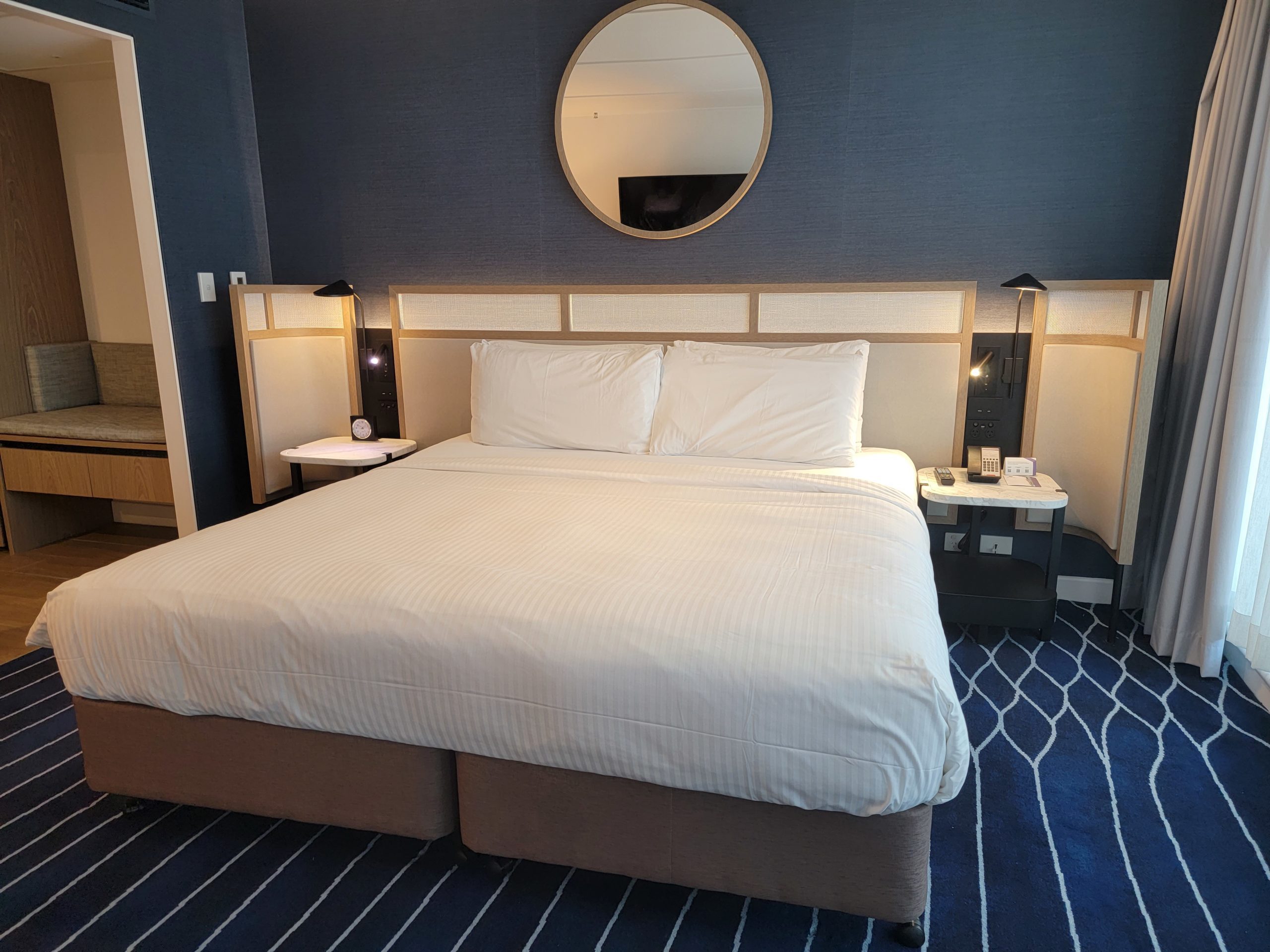
There are real opportunities, though, both to better-accommodate guests and maximize revenue with more flexible models that better planning software can facilitate. An airport hotel, for instance, might sell rooms in 4-, 8-, or 12-hour blocks (selling the same room ‘night’ more than once), or even guarantee a 24-hour stay from the time of arrival (for an upcharge).
This won’t work everywhere! But it can work beyond airports, with day use rates in major cities still useful for meetings, naps or showers or as a place to work.
Managing this profitably requires strong forecasting and staff scheduling, while Property Management Systems often still assume a 24-hour day runs from approximately 3:00 p.m. – 11:00 a.m.
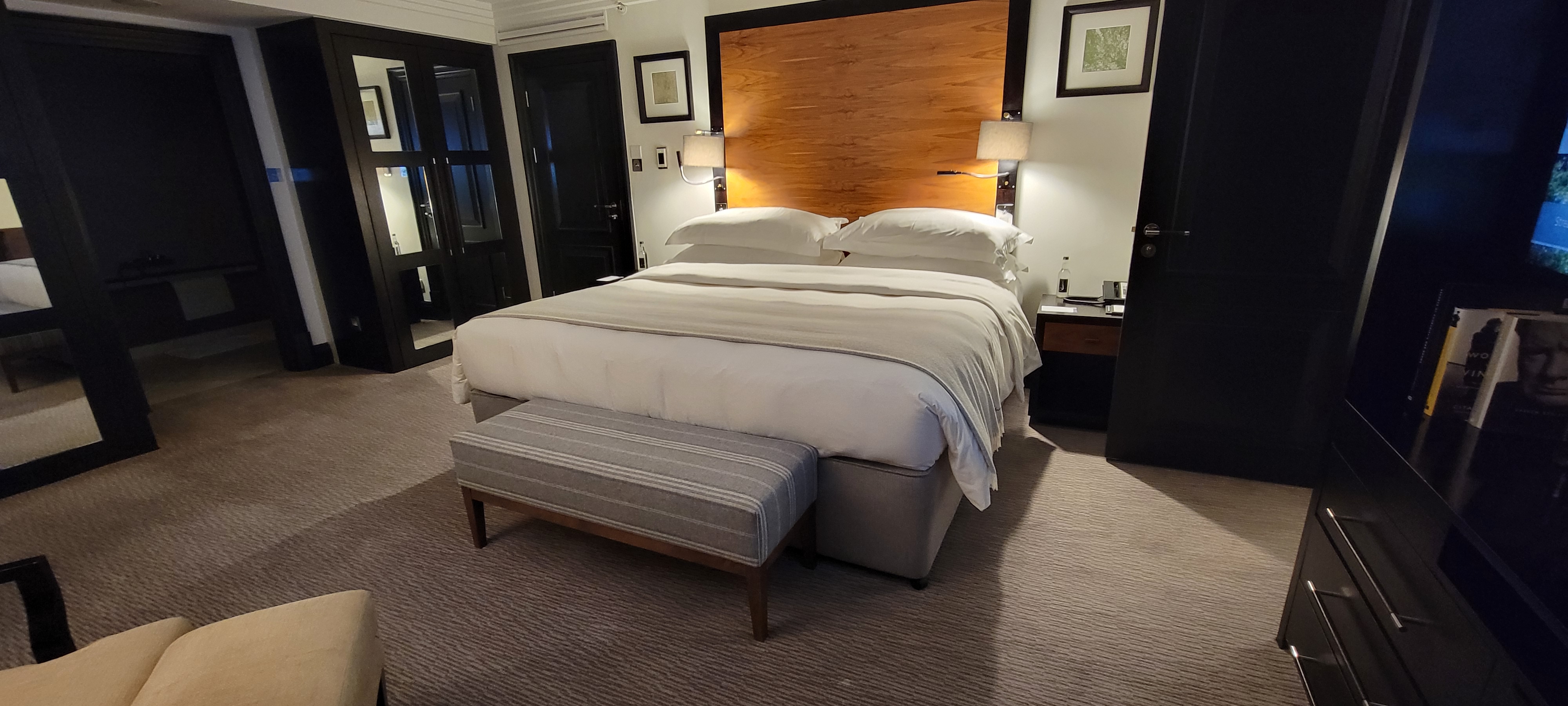
Starwood managed this when they introduced their ‘Your24’ benefit to 75-night elite members in 2012. The benefit is now part of the Ambassador package at Marriott ($23,000 spend and 100 room nights annually) but it requires hotel approval and hotels seem to approve requests far less often than they did under Starwood.
Broadening this out requires better housekeeping management software, but there are new AI-driven solutions that handle workload distribution, real-time room status updates, and use predictive analytics to streamline tasks as rooms become available. Some platforms integrate front desk, maintenance, and housekeeping, using AI to adapt schedules instantly when guests check out early or request late departure.
At a minimum, a property could reserve a floor or room block for testing 24-hour stays to figure out housekeeping and pricing as a test while limiting the impact on the overall hotel.


Ran you through AI
The article highlights the trend of hotels shortening guest stays to as little as 18 hours, rather than offering a full 24-hour period, and explores how AI could help redefine hospitality. Key points include:
1. Current Practices and Trends: Hotels are increasingly shifting to later check-in times (e.g., 4-5 p.m.) and earlier check-out times (e.g., 11 a.m.), which reduces guest stay duration while charging for a full day. This model has become an industry standard, driven by operational efficiency and revenue management strategies.
2. Challenges for Travelers: While corporate travelers may find this structure convenient, it poses challenges for leisure and long-haul travelers who often need more flexible schedules. Resort guests, in particular, may desire later check-out times, further complicating standard policies.
3. Operational and Financial Drivers: Hotels prioritize housekeeping efficiency and dynamic pricing over guest convenience. Managing shorter stays allows hotels to optimize scheduling, reduce staffing costs, and maximize revenue through yield management.
4. Opportunities for Innovation: AI-driven systems could revolutionize these practices by enabling more flexible stay options. For example, hotels could offer rooms in 4-, 8-, or 12-hour blocks or guarantee 24-hour stays from arrival for an additional fee. AI can streamline housekeeping, predict guest needs, and dynamically adjust operations in real time.
5. Implementation Challenges: Despite the potential of AI, the article highlights the logistical difficulties of adopting such systems widely, as traditional property management systems and industry norms are deeply entrenched. Existing experiments, like Marriott’s flexible check-in for elite members, show promise but remain limited in scope.
The article feels incoherent due to its disjointed structure, lack of narrative focus, and repetition of points without fully exploring solutions. It blends technical details, traveler experiences, and futuristic ideas without providing a clear roadmap for how AI could realistically transform the industry. A more cohesive approach would focus on one core argument, such as AI’s role in enabling flexible stays, while organizing the content around supporting evidence and actionable insights.
4- 8- and 12-hour room stays? Reminds me of when I worked at Chrysler in Highland Park, Michigan in the early 1980s. A motel near the Headquarters advertised “$10 short stay, $12 all night” with young ladies hanging around outside.
@Kal
Wait, Gary actually writes these himself? I assumed it was all AI to begin with.
I mean, he writes the prompt, of course. Probably something like, ‘synthesize Reddit’s r/churning, r/delta, r/united, The Points Guy, and Doctor of Credit, then write 5 articles a day on random topics in the travel industry” and post. Naturally, he also instructs the AI to draft it in the style of middle-aged guy living in Austin who does not proof-read or moderate the comments section.
The Sheraton at CDG has day rates and 24/7 housekeeping. Often they’re selling the same room twice on a single day. I paid 170 euros to spend 8 am to 3. pm in a junior suite. They had the room sold for a 4 pm check-out. Subtracting the maybe 40 euros in housekeeping pay, supplies and room replenishment (like washing linen, towels, etc), they made at least 300 euros. That more than pays for the housekeeping expense. Why more airport hotels don’t offer day rates is beyond me.
Raffles Hotels for a time offered flexible 24 hour stays. I used to choose them on this basis alone.
This is why programs like Amex FHR are so valuable. You usually get noon check in, and you are “guaranteed” 4 PM check out. If you can plan ahead, that gives you a lot more real time at the hotel
Yep, room stay appears to be shrinking. In addition, if you do manage to get an extended check-out time, your room key may still need to get re-programmed to the extended time. If you try to enter your room at 12:01 pm, your key may not work.
@Anthony
Could not agree more! Amex FHR guaranteed 4PM late checkout is the best in the industry—it’s better than top tier of most hotel loyalty programs.
I have noticed, however, that some properties have become more stingy about the ‘possibility’ of 12PM early check-ins and have received less and less ‘upgrades based on availability’ at check-in lately.
Still, the 4PM checkout, $100 credit, and 5X MR points are worth it.
@1990
Just out of curiosity, were you born an a-hole or did your parents turned you into one as you were growing up?
The 18 hours seems to be for those people who check in one day and out the next. The middle days of multi day stays are full 24 hours ones. Therefore, one form of optimization is to stay in the same hotel as long as possible.
It is funny…by being a nice human to the humans working at the hotels and asking kindly, I personally get as much flexibility in check-in and check-out as I ever have. Hmm…